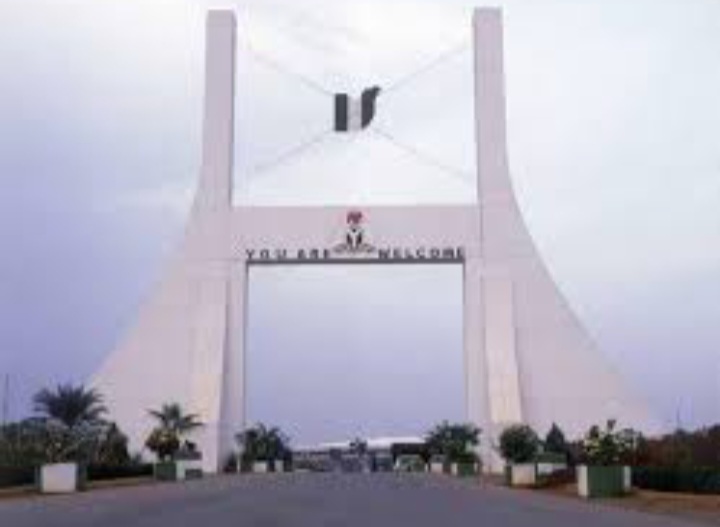Residents of the Federal Capital Territory (FCT), on Sunday decried the increasing prices of commodities, urging intervention of the Federal Government.
The residents, who spoke to the News Agency of Nigeria (NAN) in Abuja, described the development as “very frustrating”.
According to them, the development has caused them so much suffering as they can no long afford even two-square meals a day.
Mr Joseph Udiako, a civil servant said that the depreciation of the Naira had reduced the purchasing power of Nigerians.
Udiako said that the current situation was beyond explanation, adding that an increase in the price of commodities such as rice, beans, garri, vegetable oil, and maize among others was worrisome.
He appealed to the government to wade in with a view to finding solution to the problem.
Mrs Roseline Bello, a business woman, said that the prices of goods was increasing every minute of the day, and people were finding it difficult to cope. .
According to her, many Nigerians are not finding the situation easy; life has never been so difficult than what we are going through presently. Many households cannot afford two meals a day.
“The price hikes are something that needs divine intervention.
“Honestly, Nigeria at large has to turn to God and seek his forgiveness, because what is happening is beyond human explanation,” she said.
Another resident, Hajia Amina Mohmmed, said her concern was on how people would cope with the situation during Ramadan when Muslims observe fast.
Mohammed said that the relevant authorities as well as other stakeholders should do the needful before things get out of control.
“The situation as it is, the government cannot handle this situation alone because it is already going out of control.
“My advice is that international communities, Non-Governmental Organisations, Civil Society Organisations both local and foreign, and other relevant bodies should as well support the government in tackling the situation,’’ she said.
Alhaji Idris Musa, a trader, who sells flour, rice, beans and vegetable oil at Karu Market, FCT, said that his profit marginhad reduced drastically.
According to him, I no longer make much profit, because of the consistent increase in the cost of goods. The government should please do something about the situation,” he said.
Musa said that a bag of sugar now costs between N72,000 and N75,000, as against aboit N60,000 and N62,000 early this year.
“A bag of Rice now sells for between N65, 000 and N68, 000 for 50kg, depending on the area of purchase and type of the rice. The same quantity was sold between N50, 000 and N55, 000 early this year.
“Infact, all the goods in the market are too expensive, people are really suffering, we need support from our government and other relevant stakeholders across the country.
“Government at all levels should work together to know what can be done to address the situation. What is really causing this rising cost of goods is because of the dollar that is also going high.
“Government should put neccessary measures in place that can control this issue of dollar that keeps going high, as well as insecurity in the country, ” he said
Mr David Abino, a farmer in the FCT said that the major reason for high cost of goods and commodities in the country was because of insecurity, fuel subsidy removal and high cost of the dollar.
“Farmers did not really farm in 2022 and 2023 because of insecurity in the country.
“Some of our farmers, especially, in the northern part of the country did not really farm the way we should in 2022 and 2023 because of fear of bandits.
“Some farmers were kidnapped, killed; few were released with ransom, in the past two years, it has been a terrible experience, the situation has led to low production of goods and services.
“So, that is the major reason why the country is facing this hardship and uncontrolled increase in the price of goods,’’ he said.
Abino called on the government to tackle the insecurity challenge and look for practical ways that could help fix the Naira to improve the financial condition of the citizens.
He said that the government should also tackle the root causes of security challenges, including terrorism, banditry and communal clashes across the country.
According to him, the government should not look at insecurity not just as a threat to national security but also as a threat to the people.
“Government of all levels should focus on the safety and welfare of the people,” he said.
Dr Uzoma Dike, an economist and a retired civil servant said that the removal of fuel subsidy had also contributed to the high cost of commodities because of rising cost of transportation.
READ ALSO:
- Irregular Migration: Italian delegation seeks partnership with Edo Govt.
- Zenith Bank Promotes Over 4,000 Staff, Increases Salary Across Grades
- Premier League: Haaland Helps Man City To Victory Over Chelsea
- Many feared dead, 8 vehicles burnt in Enugu tanker explosion
- Prof. Samuel Afolabi Olowe, Ex-CMD LUTH Dies At 88
Dike said that fuel subsidies had been contentious issues in the country, adding that the government implemented subsidies to make fuel affordable for the people but the programme was plague by inefficiencies.
“As fuel subsidy removal bites harder, prices of essential goods and services, transport fares increase, people`s daily expense because of high cost of transportation fare,’’ he said.
The expert advised the government to prioritise provision of palliatives and other necessary measures for the transportation sector to a cushion impact of the fuel subsidy removal. (NAN)


